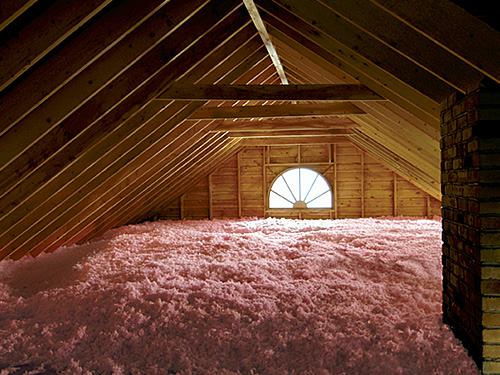Blitz News Digest
Stay updated with the latest trends and insights.
Insulation: Your Home's Secret Superhero
Uncover the hidden power of insulation! Discover how it saves energy, boosts comfort, and protects your home. Don't miss out!
How Insulation Works: The Science Behind Your Home's Comfort
Insulation is a crucial component in maintaining a comfortable indoor environment, regardless of the external weather conditions. At its core, insulation works by minimizing the transfer of heat between the inside of your home and the outside environment. This process primarily relies on three mechanisms: conduction, convection, and radiation. During the winter months, effective insulation reduces heat loss from the interior of your home, keeping it warm and cozy. In the summer, it helps keep the heat outside, allowing your air conditioning system to work more efficiently and reduce energy costs.
The effectiveness of insulation is measured by its R-value, which indicates its resistance to heat flow. A higher R-value means better insulating properties. Various materials, such as fiberglass, foam, and cellulose, can be used in insulation systems, each with its own set of benefits and applications. To maximize comfort and energy efficiency, it's important to properly insulate all areas of your home, including attics, walls, and crawl spaces. By understanding how insulation works and making informed choices, homeowners can significantly enhance their home's comfort level and reduce their energy bills.

5 Benefits of Insulation: Why Your Home Needs Its Superhero
Insulation acts as a superhero for your home by providing a multitude of benefits that enhance comfort and efficiency. First and foremost, it reduces energy costs. With proper insulation in your walls, attics, and floors, your heating and cooling systems won’t have to work as hard, resulting in lower utility bills. Additionally, insulation helps in maintaining a more consistent indoor temperature throughout the seasons, ensuring you feel comfortable without constantly adjusting the thermostat.
Moreover, insulation contributes to soundproofing your living space. It can significantly dampen noise from outside and between rooms, creating a peaceful environment, especially in bustling neighborhoods. Another crucial advantage is that insulation can protect your home from moisture buildup and mold growth, which can pose serious health risks and structural damage. Lastly, by improving your home's energy efficiency, insulation boosts its value, making it more attractive to potential buyers in the future.
Is Your Home Under-Insulated? Signs You Need to Upgrade Your Insulation
Is your home under-insulated? Many homeowners are unaware of the signs you need to upgrade your insulation. A significant indicator is fluctuating indoor temperatures. If you find yourself constantly adjusting your thermostat to maintain a comfortable environment, it may be time to assess your insulation. Additionally, if certain rooms feel drafty or significantly colder than others, this can point to inadequate insulation levels. Upgrading your insulation not only improves comfort but also enhances energy efficiency, potentially lowering your heating and cooling bills.
Another telltale sign is the presence of moisture or mold in your home. Insufficient insulation can lead to condensation build-up, resulting in an environment conducive to mold growth. This should not be taken lightly, as mold can adversely affect indoor air quality and lead to health issues. Furthermore, if you notice that your utility bills have been steadily rising without a corresponding increase in usage, it’s a clear indication that your home’s insulation may need an upgrade. Addressing these issues promptly can save you money and contribute to a healthier living space.